We have a client with angry customers. Really angry customers.
They are angry because they had unsubscribed from our client’s emails, and yet kept seeing our client in their Gmail inboxes.
“Enough!” They cried. “Stop spamming us with emails!”
Our client email and customer support teams dug in. They investigated. They researched. They scratched their heads. What was going on?
Finally, they connected with broader teams, and eventually this came to our desks.
We’re the supporting agency for this particular client’s Shopping Ads, and immediately we suspected that this was due to a campaign type Google had created a couple of years prior: Smart Shopping Campaigns.
After back and forth with Google (email from that correspondence shared below), we confirmed that this was indeed what was happening.
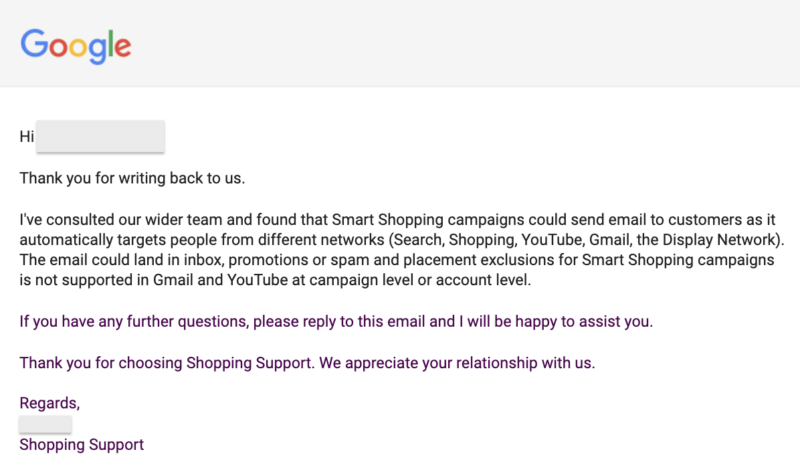
Perhaps you’ve seen the same thing with your own customers? If that’s the case, and you’re using Discovery, Smart Shopping, or Performance Max campaigns, then you may have the same issue.
The problem
What’s really happening here? Is Google Ads actually sending emails to customers?
Well, no (at least, I don’t believe so).
They’re Gmail ads, more than likely landing in the Promotions tab (based on the layout of your inbox), but the friction seems to come about when these ads fall into the inboxes of the non-techy people who are uninitiated into the complex cult of digital marketing nomenclature.
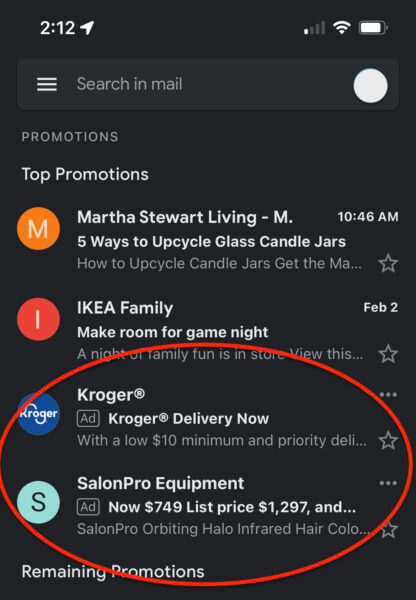
Here’s what I believe is happening: customers unsubscribe from a brand email account, and then wonder why they are still “seeing that brand” in their inbox. They don’t fully realize they are seeing ads instead of emails. (In their defense, those ads sure do put on a good act as an email.)
In fact, I’ll even go out on a limb to say I’m a little surprised this isn’t a violation of some of the permissions and privacy laws like GDPR and CCPA – though I will more quickly note that I’m not a lawyer and just surmising there.
To the normal non-marketer out in the world, is a business paid placement in the Sponsored Tabs really all that different from a business-sent email in the Sponsored Tabs (aside from one saying “Ad”)?
In reality, customers don’t care. They’re seeing a brand they chose to no longer engage with – and are angry about it.
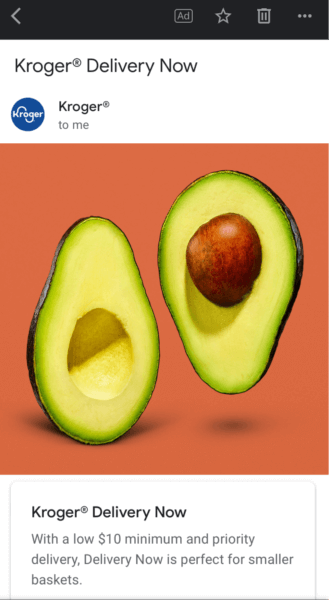
Here enters the friction. Google is serving ads in a platform entirely different than the email marketing provider used to send or manage email customers – and yet the customer doesn’t care about those details.
After all, when you boil these two entities down to their simplest form, they are both business promotional efforts from a single brand.
The temporary, less-than-ideal, not-great fix
What can a business do about this to avoid showing Gmail ads to customers who have unsubscribed?
Well, in the Discovery Campaign, a person could create and exclude a Customer Match audience list of the email addresses of those who have unsubscribed (noting the limits required to do so). However, this option is currently unavailable in Smart Shopping and Performance Max, so there is no way to exclude specific unsubscribers from seeing ads in these campaign types.
Rather, the advertiser must rely on a more reactionary approach, waiting until someone has complained to them, and then instructing the CSR’s to reply with one of two options:
- Help the customer find the “Stop Seeing This Ad” option on that ad. (To my knowledge, this doesn’t shut off all brand ads to that customer, only that specific ad. Let’s call this the Whack-A-Mole customer option. Spoiler: they’ll still hate your brand over this).
- Get the customer to reply with their IP Address, and then exclude that IP address manually from each applicable campaign. This is not a viable long-term option because most IPs are dynamic, which means it will all change again at some point in the near future.
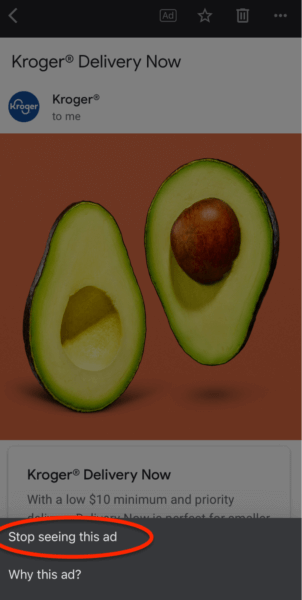
The better solution*
I realize there are other things that come into play in these decisions, but the better option would likely be for Google to allow some sort of synchronization between email marketing solutions and Gmail-Serving campaigns, or to allow for the same exclusion Customer Match list in Smart Shopping and Performance Max as they allow in Discovery.
The trick here is that smaller lists will likely be limited in serving per Google support documentation here.
In other words, they are potentially unusable by all of the smaller advertisers out there who don’t have enough subscribers to meet the list requirements!
Rock, meet hard place!
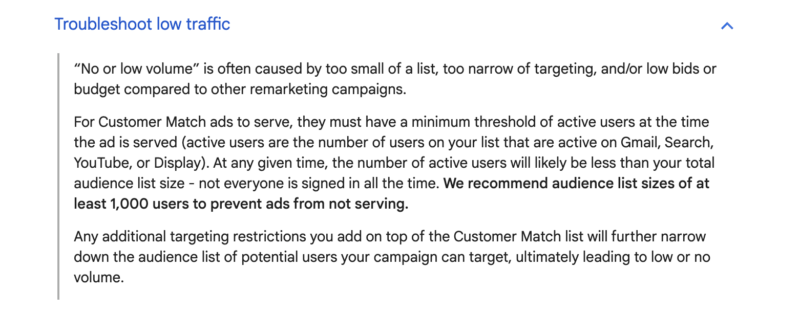
Regardless, that’s my understanding of this complex issue. I’ve reached out to Google with my concerns and will update the article when I hear back.
If you have ever wondered what is going on with email complaints from customers, now you know!
Opinions expressed in this article are those of the guest author and not necessarily Search Engine Land. Staff authors are listed here.
New on Search Engine Land
https://searchengineland.com/gmail-ads-showing-unsubscribes-379985


